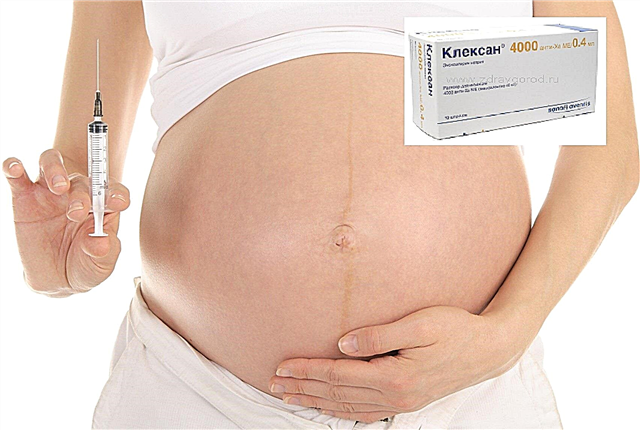
Placental tissue is an important organ that appears in the female body only during gestation. Placental attachment pathologies can be very dangerous. This article will discuss the causes and consequences of placental abruption in early pregnancy.
What it is?
Normally, the placental tissue is quite tightly attached to the walls of the uterus. Such strong fixation is necessary for the unhindered supply of nutrients and oxygen to the fetus. Without a placenta, the course of a physiological pregnancy is impossible.
The placental tissue contains blood vessels. During pregnancy, the thickness of the placenta changes gradually. So, for childbirth, its thickness is, as a rule, 20-40 mm.


Unfortunately, in obstetric practice, there are cases when placental tissue detaches from the uterine walls. This pathology develops, according to statistics, in about 0.5-1.5% of cases.
Placental abruption in early pregnancy can be of a different nature. So, if the placental tissue exfoliates almost completely, then this condition means complete detachment. This pathology, as a rule, has a poor prognosis for the further course of pregnancy.
Another clinical option is partial placental abruption. In this case, the placental tissue exfoliates from the wall of the uterus only in a certain area. In this case, as a rule, the forecast is already more favorable. With partial placental abruption, adverse symptoms usually develop gradually.

What is happening?
A variety of causal factors can lead to detachment of placental tissue. It also happens that some of them act simultaneously. In this case, the likelihood of the development of pathology increases many times.
Doctors believe that various chronic diseases of the reproductive organs can lead to the development of placental abruption in the early stages. Quite often, the development of this pathology is facilitated by inflammatory pathologies - endometritis, cercivitis and others. Usually, such diseases occur in a woman even before pregnancy.


Dyshormonal disorders can also lead to placental abruption. Certain hormones are required for the placenta to function properly. If for some reason they are few in the body, then in this case, unfavorable pathologies develop.
Addictions can also cause the development of detachment of placental tissue from the walls of the uterus. Smoking and alcohol abuse can lead to damage to the placenta.
Detachment of the placenta in early pregnancy can also occur in women who have a burdened obstetric and gynecological history. If a woman has previously had spontaneous miscarriages, then the risk of placental tissue detachment is also quite high. Also, previous abortions can increase the risk of developing this pathology. Some scientists note that the risk of developing placental abruption is slightly higher in women who have given birth to multiple babies.
The presence of certain diseases of the cardiovascular, digestive and urinary systems can also contribute to the development of placental abruption in the early stages. Often such pathologies significantly aggravate the course of pregnancy.


Allergic pathologies can also contribute to the development of placental tissue detachment. Impaired functioning of the immune system leads to imbalance in the mother-fetus system. Autoimmune diseases can trigger the development of chorionic detachment. In this case, in order to prevent the development of complications, the appointment of drugs is required.
Dyshormonal disorders can also lead to placental abruption. If for some reason they are few in the body, then in this case, unfavorable pathologies develop.
Addictions can also cause the development of detachment of placental tissue from the walls of the uterus. Smoking and alcohol abuse can lead to damage to the placenta.


Traumatic injuries can also lead to placental abruption. Blows, injuries, falls on the stomach contribute to the development of dangerous conditions. Their danger is that adverse symptoms do not always appear immediately. Clinical signs are usually mild at first. The more the placental tissue exfoliates from the uterine wall, the more pronounced the symptoms.
Adverse symptoms of placental abruption can also occur after intense exercise. Intense exercise in the gym can contribute to the development of microdamages in the placental tissue. This can cause the placenta to gradually flake off. Also, the development of this pathology can occur after lifting heavy objects.
If the course of pregnancy is aggravated by a number of other conditions, then the prognosis of the course of placental abruption changes and becomes less favorable. The combination of various pathologies contributes to the appearance of defects in the hemostatic system, the occurrence of vascular disorders and even the possible development of bleeding.


Symptoms
Adverse signs of exfoliation of the placenta can manifest themselves in different ways. With partial detachment of the placental tissue, symptoms develop gradually. In some cases, signs of pathology appear so insignificantly that the expectant mother does not attach importance to them. In such cases, the diagnosis of placental abruption may be delayed.
With the complete exfoliation of the placental tissue from the uterine walls, adverse symptoms increase very quickly. In this situation, the general condition of a pregnant woman deteriorates so much that her emergency hospitalization is required.
The most common sign of placental abruption from the uterine wall is bleeding. The degree of its severity can be different. It should be noted that bleeding can be both external and internal.
If, as a result of exfoliation of the placental tissue, blood remains inside the uterine cavity and does not flow out immediately, then in this case it is quite difficult to suspect a pathology in the early stages of pregnancy.


If a pregnant woman has blood from the genital tract in the early stages, then she should not hesitate to seek medical help. Doctors need help. With the development of placental abruption, it is extremely important to assess the general condition of the expectant mother and her baby.
It should be noted that not in all cases when placental abruption occurs bleeding. Reviews of many women indicate that with this pathology, they only had bloody discharge from the genital tract, and there was no bleeding. Such discharge can be either profuse or moderate. It depends on how much the placental tissue exfoliated.
Another symptom that can occur with placental abruption is abdominal pain. In such a situation, pain is usually localized in the lower abdomen. With complete abruption of the placenta, the pain syndrome usually appears suddenly, against the background of complete well-being. The severity of pain is very intense. Some women, experiencing this pain syndrome, may even faint.

With partial placental abruption, abdominal pain usually develops gradually. It does not always develop, but only in 40-50% of cases. It usually appears after walking fairly quickly or lifting weights. The pain can be localized or even spread to the thighs.
In some cases, with placental abruption, uterine hypertonicity may develop. This condition makes the pregnancy worse. Pregnancy, burdened by hypertonicity and placental abruption, is usually much more difficult.
With the development of this pathology, a woman may also develop concomitant symptoms. So, the expectant mother may feel nausea, weakness, and rapid fatigue. In some cases, dizziness may also appear.
It should be noted that in obstetric practice there are also cases when it is very difficult to suspect placental abruption. The asymptomatic variant of this pathology can be determined only through an ultrasound examination.


How is the diagnosis carried out?
It can be difficult to suspect exfoliation of placental tissue only by symptoms that appear. It usually happens that this pathology can only be accurately determined during ultrasound.
During this diagnostic procedure, the doctor can determine the degree of the detached placenta area, as well as identify a retroplacental hematoma. Also, during such a diagnosis, the specialist assesses the general condition of the fetus, as well as the presence of possible complications.

Effects
Detachment of placental tissue from the walls of the uterus is dangerous by the development of a number of dangerous complications. In each case of the course of pregnancy, they may be different.
Bleeding
Detachment of the placenta from the uterine walls can lead to the development of bleeding. The appearance of blood from the genital tract may appear suddenly. This pathology is dangerous with massive blood loss.
Severe blood loss leads to a decrease in the volume of circulating fluid. In this case, it is very important that medical assistance is provided in a timely manner. With the development of severe bleeding from the genital tract, a woman is hospitalized in a hospital.

Anemic condition
Bleeding from the genital tract can lead to anemia in a pregnant woman. An anemic condition is characterized by a decrease in the total number of red blood cells and (or) hemoglobin. It should be noted that an anemic state threatens to disrupt the flow of nutrients and oxygen into the embryo's body. In this situation, the child's body cannot fully grow and develop.
To determine anemia, the doctor will definitely prescribe a general blood test for the expectant mother. With this simple laboratory test, you can easily determine how much the red blood cells and hemoglobin are reduced. To correct the violations that have arisen, the expectant mother is prescribed iron-containing drugs. Such funds should be used for a rather long time.

Intrauterine fetal hypoxia
Oxygen deficiency in the blood is called hypoxia. If fetal hypoxia develops and persists in the first trimester of pregnancy, then this can disrupt the physiology of intrauterine development. In the early stages of pregnancy, the fetus actively undergoes organogenesis - the process of formation of internal organs. Intrauterine hypoxia is a dangerous condition that can affect the development of various pathologies in a baby.

Risk of miscarriage
The prognosis of the course of pregnancy with placental abruption, unfortunately, can be rather sad.
Detachment of placental tissue is accompanied by impaired uteroplacental blood flow. Without the supply of nutrients and especially oxygen, the fetus cannot exist for a long time.
The development of spontaneous miscarriage in early pregnancy, unfortunately, is quite common in gynecological practice. The most dangerous in this case is complete placental abruption. In such a situation, even fetal death can occur.
How to prevent possible complications?
After the expectant mother is diagnosed with placental abruption, she should carefully monitor her health. Doctors make up a whole set of recommendations that should help avoid adverse consequences. These recommendations necessarily include:
- strict adherence to the daily routine;
- rational nutrition enriched with vitamins and microelements;

- full sleep for at least 8 hours a day;
- limiting classes in the gym and pool;
- prohibition on lifting heavy objects;
- limiting stress;
- regular observation by an obstetrician-gynecologist;
- restriction of sexual activity, and, if necessary, even complete sexual rest;
- taking individually selected medications.
If any adverse symptoms appear, the expectant mother should immediately see her doctor. These simple guidelines can help reduce your risk of developing dangerous complications early in your pregnancy.

Treatment
The prognosis of the development of pregnancy when determining placental abruption largely depends on how timely the doctors identified this condition. Timely diagnosis can significantly reduce possible complications, provided that the pregnant woman observes all the recommendations that are drawn up for her with this pathology.
Therapy for placental abruption is complex. The choice of treatment tactics largely depends on the severity of the disorders that have arisen. For this, doctors must assess both the condition of the expectant mother and her baby.
The degree of blood loss, which certainly develops with placental abruption, also significantly affects the choice of tactics for managing such a complicated pregnancy in the future. Also, the doctor necessarily evaluates the need for hospitalization in a hospital.

Drug therapy
Medicines used to treat placental abruption can be very diverse. So, in order to stop the developed bleeding, doctors resort to prescribing hemostatic agents. One of these drugs is Tranexam. This product contains tranexamic acid, which has a hemostatic effect.
Tranexam is prescribed for various bleeding, including those arising during pregnancy. Before prescribing this drug, as a rule, it is necessary to pass a biochemical test for blood clotting.
You should not take this remedy yourself. Before taking it, be sure to consult with your doctor.

In some cases, doctors resort to prescribing drugs that help to cope with the adverse symptoms of placental insufficiency. One of these means is "Curantil". It helps to normalize decreased blood flow in the uteroplacental vessels and improve the well-being of the fetus.
With placental abruption, which has developed due to dyshormonal disorders caused by a decrease in progesterone in the blood, hormonal drugs are prescribed. So, to normalize the level of the main pregnancy hormone in the blood, doctors quite often prescribe "Duphaston". The dosage and duration of use are determined by the obstetrician-gynecologist. While taking the drug, the dynamics of the state of the pregnant woman and the baby must be evaluated.


If during the bleeding that develops with placental abruption, pain in the abdomen develops, then pain relievers are prescribed to stop it. It is not worth using such funds for a long time. They are usually used periodically only to relieve pain.
With a slight exfoliation of the placenta, doctors can leave the expectant mother at home. Hospitalization in a hospital is carried out only with a threat to the life of the fetus or with a decompensated state of the expectant mother. In this case, more careful and careful observation of doctors is required.During a hospital stay, a pregnant woman is given a number of drugs that are necessary to improve her well-being.
In order to assess the dynamics of the pathology, doctors refer the expectant mother with placental abruption to various examinations. So, a woman undergoes ultrasound and cardiotocography. Also, the doctor may prescribe Doppler ultrasonography to assess the uteroplacental blood flow.


Medicines with an antispasmodic effect are prescribed strictly according to indications. Their action is aimed at relieving the spasm of blood vessels. Drotaverine hydrochloride ("No-Shpa") is usually used as such means. Pregnant women who develop placental abruption during pregnancy should not use antispasmodics on their own uncontrollably at home. In some cases, they can only increase bleeding.
The obstetrician-gynecologist will tell you about the causes of placental abruption in the next video.



